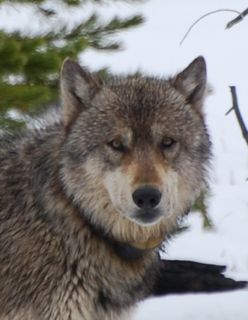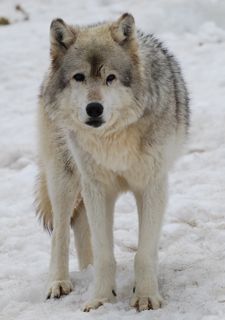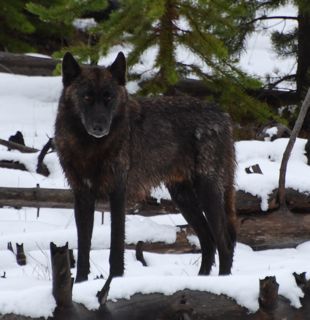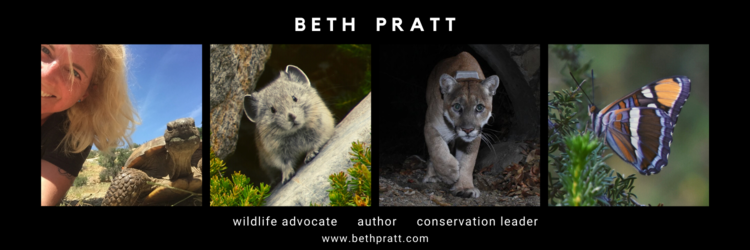 Yesterday a federal judge halted the killing of the gray wolf—at least temporarily—by reinstating their protection under the Endangered Species Act. The Natural Resources Defense Council, The Center for Biological Diversity, Defenders of Wildlife, and other non-profit wildlife advocates successfully argued that the wolves had not met the set recovery goal, and that the state of Wyoming had failed to implement an adequate management plan to protect the species.
Yesterday a federal judge halted the killing of the gray wolf—at least temporarily—by reinstating their protection under the Endangered Species Act. The Natural Resources Defense Council, The Center for Biological Diversity, Defenders of Wildlife, and other non-profit wildlife advocates successfully argued that the wolves had not met the set recovery goal, and that the state of Wyoming had failed to implement an adequate management plan to protect the species.
I celebrated with a toast of sake (having no champagne in the house). The slaughter of wolves once the protection was lifted in April was truly disturbing to watch. According to the NRDC, 106 wolves have been killed since then—at a rate of almost one a day.
 When you consider the statistics, the rage against wolves is a bit perplexing. Only 1% of livestock losses are attributed to wolves—for example, in Montana only four sheep and thirty-six cattle were killed in 2006, and reimbursement programs by non-profits have been established to compensate for those losses. The NRDC website states that “a person in wolf country has a greater chance of being hit by lightning, dying of a bee sting or being killed in a vehicle collision with a deer than being injured by a wolf.”
When you consider the statistics, the rage against wolves is a bit perplexing. Only 1% of livestock losses are attributed to wolves—for example, in Montana only four sheep and thirty-six cattle were killed in 2006, and reimbursement programs by non-profits have been established to compensate for those losses. The NRDC website states that “a person in wolf country has a greater chance of being hit by lightning, dying of a bee sting or being killed in a vehicle collision with a deer than being injured by a wolf.”
Last year I hiked with a friend up the Lamar River Trail in Yellowstone. Out of the nearby forest rose the chorus of a wolf pack. As we listened to the musical howls, tears came to my eyes. We were in the presence of wildness, and were listening to what Aldo Leopold described as “an outburst of wild defiant sorrow, and of contempt for all the adversities of the world.”
Why are we so threatened by wolves and other predators? I understand they can be scary, injure people and livestock, and cause an occasional death, but so can automobiles and we certainly don’t advocate against the wholesale destruction of the car. Is our fear of death making us miss vital and beautiful (but perhaps not safe) experiences? I think so. And on that theme, I’ll end with another quote from Leopold from his affecting essay, “Thinking Like a Mountain.”
“We all strive for safety, prosperity, comfort, long life, and dullness. The deer strives with his supple legs, the cowman with trap and poison, the statesman with pen, the most of us with machines, votes, and dollars, but it all comes to the same thing: peace in our time. A measure of success in this is all well enough, and perhaps is a requisite to objective thinking, but too much safety seems to yield only danger in the long run. Perhaps this is behind Thoreau's dictum: In wildness is the salvation of the world. Perhaps this is the hidden meaning in the howl of the wolf, long known among mountains, but seldom perceived among men.”
You can read the full text of Thinking Like a Mountain at http://www.eco-action.org/dt/thinking.html

